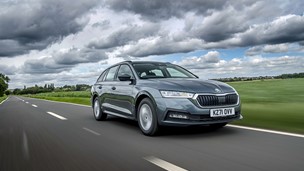Everyone knows that the UK’s public roads have various speed limits in place, but some motorists may not be aware of all the rules related to speed limits. For instance, do you know the rules of speed limits when your towing?
In this guide, we have the answer to this question and others you may have regarding the UK’s speed limits.
What is the speed limit on a motorway?
In normal circumstances, the UK motorway speed limits is 70mph. It is possible though that while travelling through a certain area of a motorway where there is roadworks in place, a lower speed limit may be applied in this area and average speed cameras will be used to enforce it.
The speed limit can also vary if you are on a smart motorway. These types of motorway are adapted so that the hard shoulder can be used as a running lane and variable speed limits can be applied in reaction to the current traffic on the road.
For more information, you can read our separate guides on how smart motorways work.
What is the speed limit in a residential area?
The speed limit for roads in residential areas is typically 30mph.
The speed limit is usually reduced to 20mph on roads where is a school nearby.
What is the speed limit on a dual carriageway?
On a dual carriageway, the maximum speed limit which may be imposed for cars is 70mph.
When you’re travelling on a dual carriageway, there will usually be frequent signs that confirm what the speed limit on that particular road is. If there are national speed limit signs by the road, then the maximum speed limit of 70mph is being enforced.
What is the national speed limit?
The UK national speed limit is 60mph for single carriageway roads and 70mph for dual carriageway roads.

UK speed limits for vans
The UK speed limits for vans weight two tonnes or less is the same as the rules applied for cars and motorbikes.
For vans, buses, coaches and minibuses that weigh more than two tonnes (and up to 7.5), the speed allowances are set at 50mph on single carriageways, 60mph on dual carriageways and 30mph on restricted roads (like with cars and other type of vehicles). The motorway speed limit is also unchanged at 70mph.
HGV speed limits
For heavy goods vehicles (HGVs) which weigh up to 7.5 tonnes, the UK speed limits are set at 50mph on single carriageways, 60mph on dual carriageways and 60mph on motorways.
In Scotland however, the speed limits for HGVs are different on single carriageways and dual carriageways – 40 and 50mph respectively.
Speed limit for towing
For cars, motorbikes and vans towing a trailer, the speed limits imposed are 50mph on single carriageways and 60mph on dual carriageways and motorways.
Find out the five cars great for towing here.
When were speed limits introduced?
The 30mph speed limit was introduced to UK roads situated in built-up areas back in 1930.
The 70mph speed limit was eventually introduced to previously unrestricted roads in 1965.
UK speeding fines
The minimum punishment for being caught speeding on a UK road is a £100 fine and three penalty points. Speeding fines can be costlier and lead up to six penalty points on your licence depending on how serious the offence is deemed.
Drivers caught committing a speeding offence may be offered the chance to attend a speed awareness course in place of receiving penalty points. You can read more about what is a speed awareness course in our separate guide.
Speeding is just one of the driving offences that could land you penalty points, find out how do penalty points work and how long do they last.




